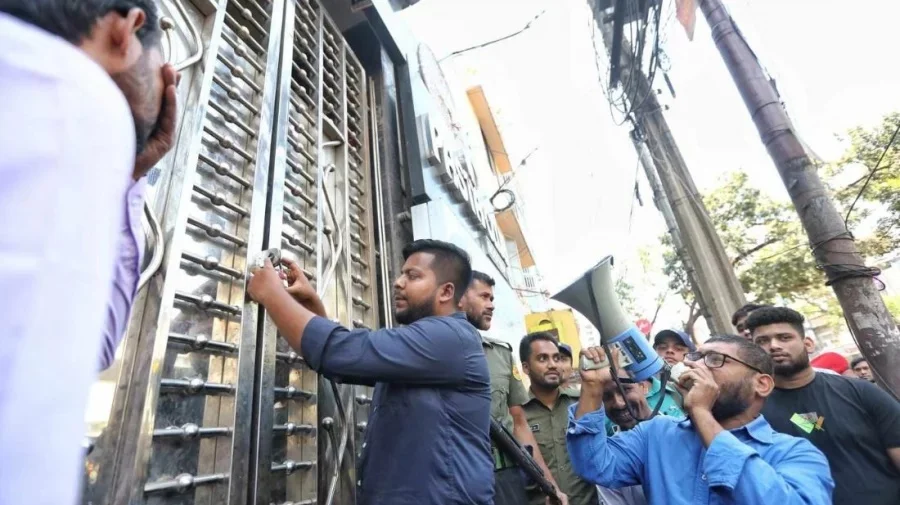Post-Bailey Road fire raids lose steam
Share on:

Coordination challenges hinder sustained efforts
Following the loss of 46 lives in a fire on Dhaka’s Bailey Road last month, government entities, including the city corporation, fire service, Rajdhani Unnayan Kartripakkha (Rajuk) and police, promptly initiated campaigns across the capital to uncover irregularities, corruption and criminal activities.
Twelve days after the fire, the city corporation is carrying out a couple of operations, but other agencies appear to be done with their raids.
Similar to past incidents at Churihatta, Nimtoli, Siddik Bazar, Bangabazar and Science Lab, government agencies washed their hands of the Bailey Road tragedy and tried to blame each other.
Sources from the Dhaka South City Corporation (DSCC), fire service, Rajuk and police reported raids at over 300 buildings and structures in the week following the Bailey Road accident, resulting in closures, evacuations and the arrest of over 100 individuals.
In numerous locations, owners of hotels and restaurants lacking proper documentation had shut down their establishments and retreated into hiding out of fear of raids. However, with the operations mostly halted, they have resumed business in the same risky buildings as before.
Rajuk Chief Town Planner Ashraful Alam, when questioned about the cessation of raids, explained that after any accident, the agency tried to prevent similar mishaps. However, he acknowledged Rajuk’s inability to single-handedly halt all irregularities.
“We approve building designs, another issues trade licences and some other organization else authorizes the use of electricity, gas, etc. Because of this, we are exploring methods to conduct operations in coordination with other organizations rather than independently.”
Meanwhile, the DSCC admitted to conducting fewer operations than necessary due to a shortage of magistrates. According to city corporation sources, it currently has only two magistrates. Additionally, a regional executive officer has been authorized to lead raids.
Previously, during last year's dengue outbreak, the DSCC obtained 10 magistrates for two terms from the public administration ministry. However, they were recalled at the end of the dengue season.
DSCC Chief Property Officer Kaizer Mohammad Farabi said: "After the Bailey Road accident, we conducted raids on such buildings at risk of fire. However, the shortage of magistrates poses challenges in raiding other necessary locations. Efforts are underway to bolster the number of magistrates.”
Experts, on the other hand, said whenever there was an accident, disaster or major crisis, authorities became busy trying to unearth irregularities.
They lamented that despite initial scrutiny, the situation often returned to the status quo shortly afterwards, indicating a lack of sustained efforts by relevant organizations to address the underlying issues.
Dr Adil Mohammed Khan, president of the Bangladesh Institute of Planners (BIP), emphasized that hastily conducted operations post-accidents yielded no lasting benefits, stressing the importance of holding accountable the responsible organization following an incident.
This urban planner called for year-round integrated operations involving all relevant organizations, including Rajuk, city corporation and fire service, as a preferable approach to isolated post-accident raids for a long-term solution.

